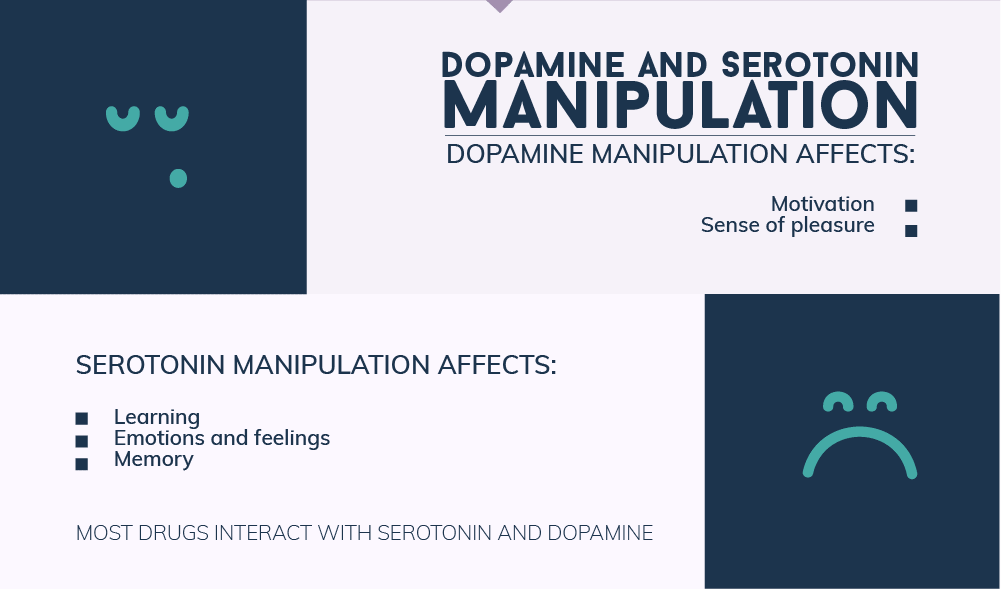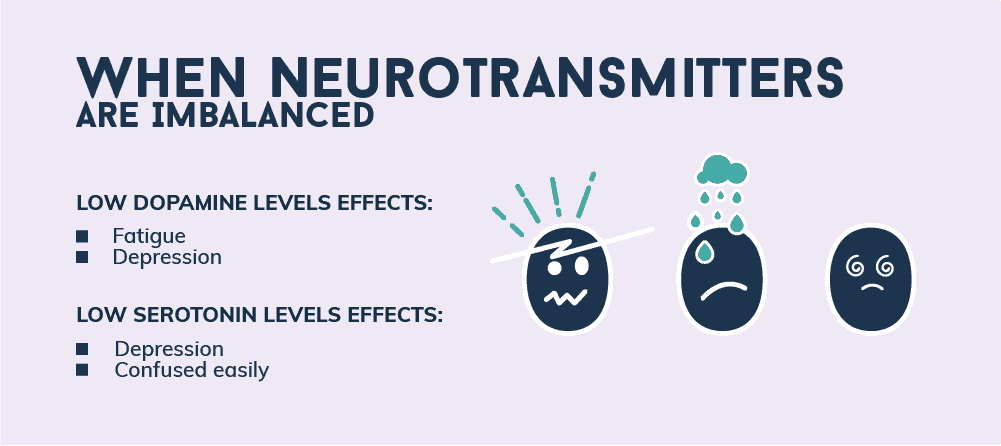One of the most significant hurdles to addiction recovery is imbalances in necessary chemicals made by the brain, including serotonin withdrawal. As a result, many people relapse during withdrawal when they cannot cope with the symptoms. However, there are ways to combat this through addiction treatment, diet, supplements, and lifestyle changes.
If you or a loved one is struggling to maintain sobriety, it may be time for professional addiction resources. Northpoint Seattle is a leading addiction treatment center that can help you or your loved one get on the path to recovery. Contact us today by calling 888.483.6031 to learn more about our programs and how we can help you take the first steps toward sobriety.
What Is Serotonin?
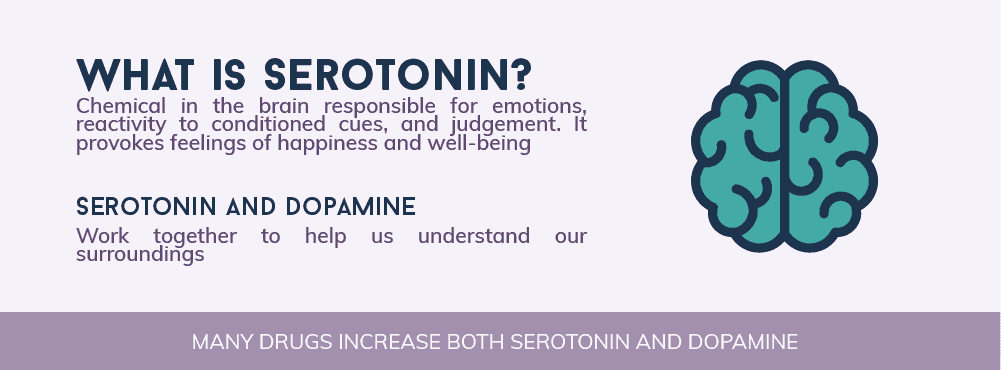
Serotonin is a neurotransmitter that plays a role in many functions in the human body, including mood, appetite, digestion, memory, and sexual function. It is sometimes referred to as the “happy chemical” because it is involved in feelings of well-being and happiness.
The brain and gut produce this vital chemical. It is also found in many different food sources, including meats, eggs, dairy, seeds, and nuts. Scientists have also found ways to produce it in the laboratory.
The Role of Serotonin in Addiction
While serotonin is best known for regulating mood, it also plays a role in addiction and withdrawal. Serotonin is involved in the brain’s reward system, which is why it can be challenging to quit an addictive substance. When someone uses an addictive substance, dopamine is released in the brain. This release of dopamine gives the person a feeling of pleasure. Over time, the brain becomes used to this constant release of dopamine and begins to adapt.
As the brain adapts, it becomes less sensitive to dopamine. This desensitization means that the person needs to use more of the substance to get the same feeling of pleasure. An increase in use can lead to addiction and withdrawal symptoms when the person stops using the substance.
Withdrawal symptoms can include anxiety, irritability, and depression. These symptoms are caused by the sudden decrease in serotonin levels in the brain. Serotonin plays a role in regulating mood, so low levels can lead to feelings of sadness and anxiety.
Serotonin in Addiction to Prescription Drugs
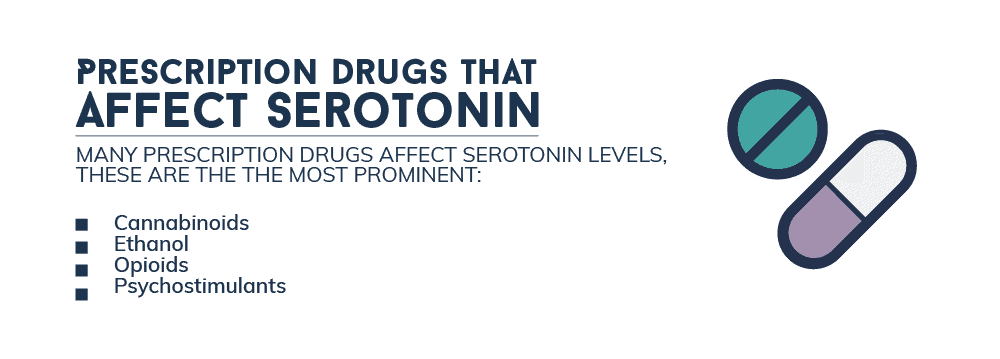
The role of serotonin in addiction is not limited to illegal drugs. It can also be involved in the addiction to prescription drugs. For example, opioid painkillers bind to receptors in the brain responsible for pain relief. These drugs also increase dopamine levels in the brain, which can lead to addiction.
When someone with an addiction to opioids stops taking the drug, they may experience withdrawal symptoms such as anxiety, irritability, and depression. These symptoms are caused by the sudden decrease in serotonin levels in the brain.
Stopping Antidepressants
Serotonin is also involved in the withdrawal symptoms that can occur when someone stops taking antidepressants. Antidepressants work by increasing levels of serotonin in the brain. When someone with depression stops taking their medication, they may experience withdrawal symptoms such as anxiety, irritability, and depression. These symptoms are caused by the sudden decrease in serotonin levels in the brain.
If you are considering stopping your antidepressant medication, you should talk to your doctor first. Stopping antidepressant medicines can cause serious side effects, so it is essential to be under the care of a medical professional when you make this decision. This hurdle is why breaking an addiction to antidepressants can be especially difficult.
Neurotransmitter Imbalance
One of the most common causes of addiction is a neurotransmitter imbalance, which occurs when serotonin, dopamine, and other neurotransmitters in the brain rise or dip to extreme levels. This imbalance can stem from various factors, including genetic predisposition, stress, trauma, and substance abuse.
A neurotransmitter imbalance can lead to various mental health disorders, such as anxiety, depression, and addiction. If you think you may have a neurotransmitter imbalance, it is essential to talk to your doctor. They can order tests to check for imbalances and provide you with treatment options.
How to Naturally Release Serotonin

There are a few things that you can do to release serotonin naturally. One of the best ways to increase serotonin levels is to exercise. Exercise releases endorphins, which are hormones that have mood-boosting effects. Endorphins are similar to serotonin and can help to improve your mood.
Another way to increase serotonin levels is to spend time in nature. Being in nature has been shown to have various health benefits, including reducing stress and improving mood.
Finally, you can try meditation or yoga. These activities have been shown to help reduce stress and improve mood.
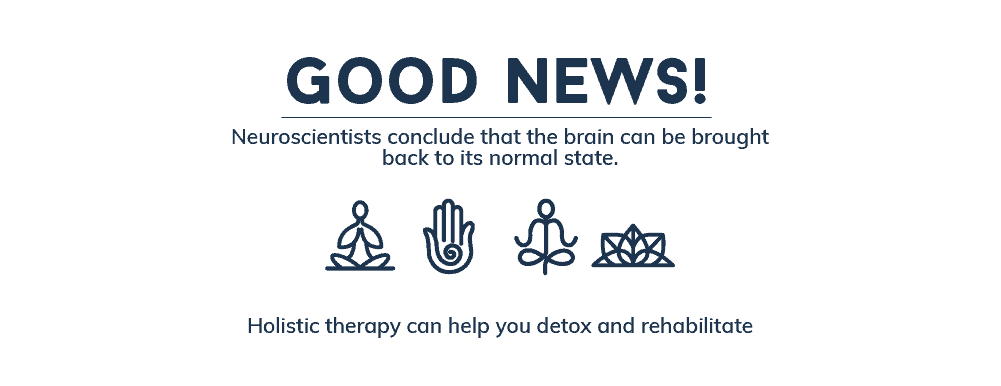
Addiction Treatment at Northpoint Seattle
It is important to seek professional help if you are struggling with addiction. Addiction is a serious disease that can majorly impact your life. If you are struggling with addiction, there are a variety of treatment options available.
At Northpoint Seattle, we offer a variety of outpatient addiction treatment programs. We also offer a variety of therapies, such as cognitive-behavioral therapy and family therapy.
If you are struggling with addiction, we can help. Contact us today by calling 888.483.6031 to learn more about our addiction treatment programs.

